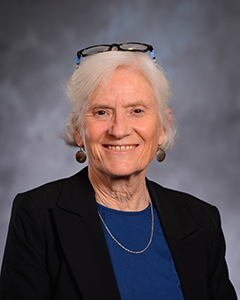Marsh, an Ashland Democrat, said, “That’s the most important thing. Keep Medicaid whole. I can’t emphasize this enough. It’s the crucial building block to Oregon’s healthcare system. Without it, we’ll have to spend the rest of the legislative session on it,” trying to find new funds or cutting back programs such as mental healthcare.
Without the new revenues, the state will suffer a drop of $210 million to $320 million, triggering a possible shrinking of $630 million to $960 million in federal Medicaid matching funds, according to the Secretary of State’s website.
With passage, supporters in the Legislature, she adds, will be able to keep full coverage for 100 percent of children in Oregon. As part of the effort, it will affirm “healthcare appropriate to gender identity” and every child “born to a family willing to nurture them.”
The federal tax cut has tossed a bomb into personal and state taxation systems with effects that won’t be immediately known, Marsh said. It might cost Oregon about $100 million the first year, $40 million the second year then “a little additional” after that, she told the crowd of 200.
“It’s affected everything, and there’s a lot about it we don’t know yet.”
Although the long-debated and analyzed Clean Energy Jobs Bill is seemingly the top priority for lawmakers, it could well get postponed to the 2018 regular (long) session if Measure 101 goes down, Marsh said.
The legislation, also called the “cap and invest bill,” imposes major assessments on the top 100 carbon polluters — those that generate more than 25,000 metric tons of carbon dioxide a year, mainly in transportation, utilities and industry.
Underlining the importance of the bill, which was first introduced and studied in 2007, Marsh said, “Our climate is disintegrating. Oregon needs to get greenhouse gas emissions to 80 percent below 1990 levels. This will be very difficult to pass. We want to create incentives (for carbon polluters) and look at a range of innovations. It will require enormous effort.”
The Governor and House are very supportive, but the Senate Democratic vote is squishy, she said, and a few more Republicans (she indicated Sen. Allen DeBoer) will need to stand up if it is to pass.
Looking at the short session, DeBoer, representing Medford and Ashland, said the cap-and-invest legislation needs a lot of work and should be put off to the 2019 session.
“I hope nothing passes this session,” said DeBoer, in a phone interview. “Both parties need to come together in ways that will eventually benefit all citizens. It’s wrong for one party to stuff something through, just because they have the votes. You have to treat the minority as equal. When you get elected, you become an Oregonian, not a member of the majority party.”
DeBoer said the Legislature faces a big task in a one month session of grappling with the energy bill, addressing many fixes on last session’s transportation bill, then dealing with healthcare while keeping the state’s budget balanced, as required by law.
DeBoer notes the energy legislation has “lots of issues” but gives Oregon advantages against other states in a cap-and-trade energy economy because of our immense “carbon sequestration” in forest lands.
“It’s all very, very complicated, and it involves a lot of money,” he said.
On the so-called “cap and invest” energy bill, DeBoer said, “As it is now, I can’t vote for it. I don’t know where the money is going. DEQ (Department of Environmental Quality) has had issues in the past and has had trouble managing jobs to create green energy.”
Marsh said that was under an entirely different bill, the Business Energy Tax and “that was not a cap-and-trade bill.”
In the long run, DeBoer says, “Everyone wants to create a good environment. We’re coming to come consensus. The question is, do we bring a bunch of bills in a one month session. No, we need proper time to do this.”
On lesser issues, Marsh indicated the Legislature will work for more treatment, not incarceration for young drug offenders, gender pay equity, affordable housing (especially to reduce the state’s increasing number of homeless students) and more broadband access across the state.
As a member of the powerful House Revenue Committee, Marsh works on economic development and, she says, has found that broadband if the biggest tool to further that goal.
She reaffirmed her commitment to blocking the Jordan Cove LNG pipeline, proposed to cut across southwest Oregon, noting it would release “really scary” amounts of greenhouse gases.
Marsh read of list of new laws taking effect January 1, joking, “Here’s a list of things we did to you.” It include the much-likely-to-be-flaunted law upping the age for tobacco purchase to 21. The crowd applauded to hear it.
They also clapped when Marsh detailed Oregon’s new ERPO (Extreme Risk Prevention Order) law, which allows families to get a court order to prevent gun access if a family member has threatened harm to self or others. Marsh voted in favor of it.
On the thorny and often humorous issue of self-service gasoline, Marsh said, “In Oregon, we have a pretty big commitment to not pumping our own gas.”
